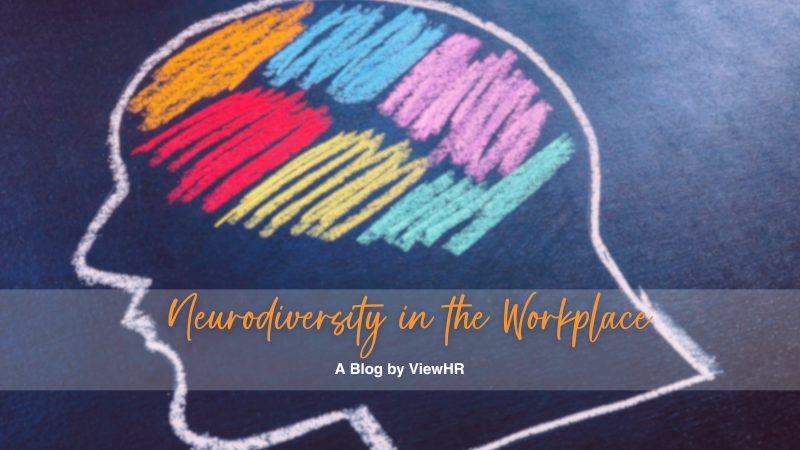Drop off your CV
We serve the global HR community through our offices located in Delhi, Hong Kong, London, New York, São Paulo and Singapore and have placed HR leaders in over 30 countries.
In recent years, the concept of neurodiversity in the workplace has gained significant atten...

In recent years, the concept of neurodiversity in the workplace has gained significant attention and attraction within the workplace. Neurodiversity refers to the other ways that the brain may work, learn, process, think about and interpret information. The range of neurodiversity highlight that no two brains are the same and that we all think and learn in very different ways.
‘Neurodiversity’ encompasses a range of neurological conditions, including autism, ADHD, dyslexia and more. Rather than organisations viewing these differences as a deficit, forward thinking organisations are recognising the immense value that a neurodiverse workforce can bring.
Neurodiversity is a term that organisations should embrace, harness and welcome within the workplace. Let’s not forget what a competitive edge embracing neurodiversity can bring to an organisation!
In this blog, we will explore the importance of embracing neurodiversity in the workplace and what key skills neurodiverse employees can bring. In addition, we discuss how to build psychological safety in the workplace.
Key Skills
As we know, all employees can bring different skill sets with them to an organisation, but many employers are unaware of the different skill set that a neurodiverse employee can bring and the enhancement that these skills can offer to their workplace.
It is important to understand that neurodiverse individuals can possess unique perspectives and talents that can greatly benefit any organisation. Common beneficial skillsets associated with neurodiverse employees can include:
attention to detail, whether that be spotting errors in data management, identifying efficiencies in a process, or even reviewing and analysing documents.
a keen eye for detail.
strong problem-solving abilities, and cognitive styles enabling different ways of thinking, which can lead to innovative ways of thinking and solutions.
creativity and outside the box thinking.
Such skills can really help any organisation to thrive and set themselves apart from others, particularly those that require constant changes or adaptations to keep up with the competition.
The term ‘hyperfocus’ means that someone can focus on a task or project for long periods of time, someone that is neurodiverse may have this skill in abundance. This intense focus can in turn then provide an organisation with increased productivity and the ability to provide a greater accuracy of work. JPMorgan reported that professionals in its Autism at Work initiative made fewer errors and were 90% to 150% more productive than neurotypical employees. On the other hand, some individuals may struggle to maintain focus, whilst being highly creative and outside thinkers. Another skill that neurodiverse individuals can often bring to any organisation is that of honest feedback and transparency. There can be a tendency amongst some to be rather straightforward and honest in their communication styles. As we all are aware honesty in any situation can be the best policy, but within the workplace this can lead to more effective collaboration and problem solving as any issues will be address quickly and solutions are found more effectively.
With all key skills and their accompanying attributes, there can come challenges too amongst colleagues and management. To secure and enhance the key skills associated with neurodiverse employees, it is important that managers feel educated in neurodiversity so that they are confident and able to manage their teams.
Why is psychological safety important?
What do we mean by the term psychological safety? The CIPD define psychological safety as to how confident we feel to take appropriate risks at work due to our relationships with our colleagues and our managers. When we embrace neurodiversity within the workplace this can help to build levels of psychological safety for all concerned. It is believed that psychological safety is the key to employee wellbeing and in turn the overall organisational success.
Psychological safety in the workplace allows individuals to feel safe and to express themselves in a safe way. To make a neurodiverse individual feel safe, you need to be mindful of elements such as promoting inclusivity, encouraging open and honest communication together with concise feedback at all levels. A supportive environment will ensure that all employees feel psychologically safe to be themselves and to reach their fullest potential.
For those individuals who are neurodiverse, where there is a lack of psychological safety, an employee may feel anxious, isolated, frustrated, insecure and not accepted or understood. As an employer it is your responsibility to ensure that this is not the case, and you support all individuals within the workplace.
In some organisations, there is a lack of understanding of what neurodiverse means and how it can benefit an organisation. If this is the case, it would be wise to educate employees about neurodiversity to help them to understand and empathise towards those colleagues who think, communicate or process information differently. By embracing the unique skills and ways that a neurodiverse individual may think and learn will bring fresh perspectives and ideas to the organisation. Teams will naturally become more creative and adaptive to their surroundings and you in turn harness an environment whereby all skills and contributions are valued.
If you harness those unique skills detailed above, then just think what your organisation could achieve in the future, recognising these skills as strengths and assets to your organisation will only create an environment whereby all will thrive, which in turn will lead to greater production, innovation, and overall success for any organisation.